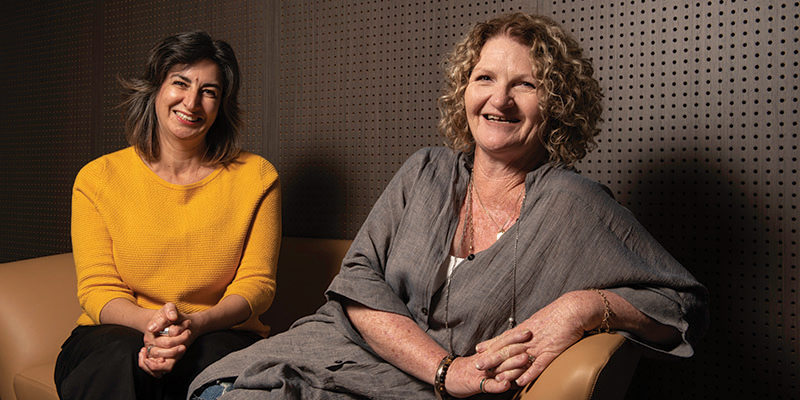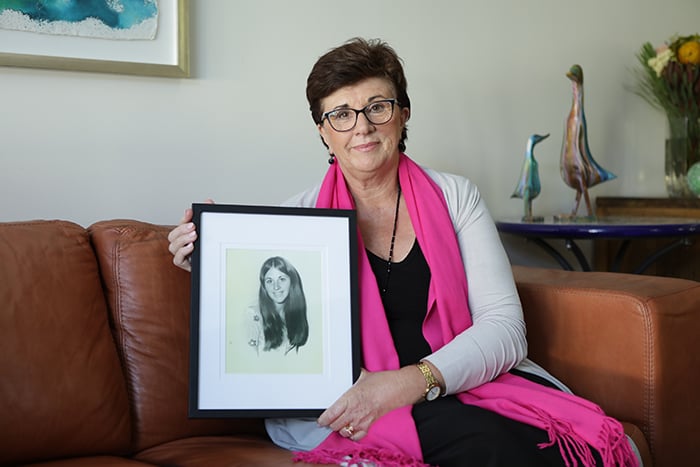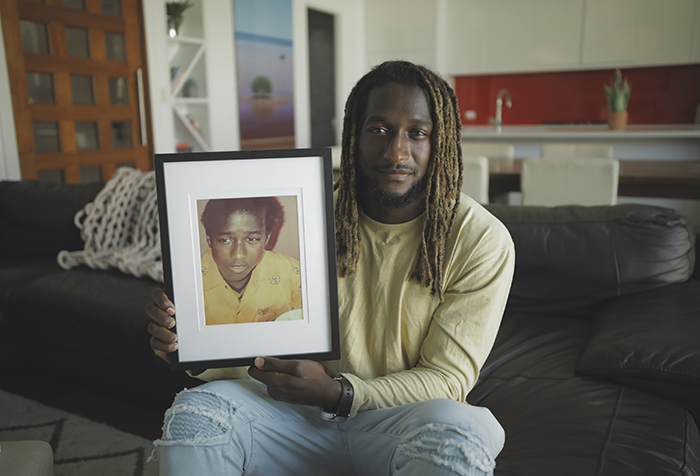 Dr Ashleigh Lin and Fiona Bailey
Dr Ashleigh Lin and Fiona Bailey
Embrace – a new research collaboration based at Telethon Kids – will bring a new focus to understanding and improving the mental health of children and young people.
Fiona’s son Sam was just 17 when he took his own life.
“When I realised Sam was gone, everything stopped. It was like my world had ended,” Fiona said. “Never in a million years did I think this would happen. He was always so happy.
“I look back and I look for signs in his eyes or some sign that he was sad, but I can’t see it. Sam wasn’t bullied, he wasn’t on drugs, he hadn’t split up with his girlfriend. It’s so confusing because you don’t understand.”
Sadly, Sam’s story is not an isolated one. Suicide is the leading cause of death in 15-24 year olds in Western Australia, accounting for one in three deaths in young people.
Now a new collaboration based at Telethon Kids – called Embrace – will become the first research centre in the state devoted to the mental health of children and young people aged 0-25.
Led by some of Australia’s top mental health researchers, Embrace will find new ways to help kids at the lowest times in their lives – when they’re experiencing trauma, depression, anxiety, or thoughts of suicide or self-harm. Co-lead, Associate Professor Ashleigh Lin, said Embrace would bring together clinicians, service providers and government stakeholders to tackle the issue of mental health with a collaborative, holistic approach.
It would also seek to prevent crisis before it starts, by giving kids and communities the tools they need to better cope with challenges they face, including bullying, unsafe cyber behaviours, and stressful experiences.
“Embrace will work towards deeply understanding the experiences and needs of children and young people by listening to their voices and evaluating innovative ways of helping them,” Dr Lin said.
“We’ll then promote these solutions to mental health service providers and policymakers to create real and effective change.”
Dr Lin said mental health was a complex issue that was still not fully understood.
“That’s why research is so important,” she said. “It’s how we come to understand where problems originate, create new ways of helping vulnerable kids, prove which therapies work best, make sure kids get the right support, and discover how best they thrive in their families, schools and communities.”
It was essential, she said, to find new ways to prevent and treat mental health issues in order to keep children and young people on the right trajectory, so they could develop into happy and productive adults.
“Embrace will find answers to our most pressing mental health problems, and will push boundaries to not only create a more effective mental health system, but make a genuine difference for those vulnerable to suicide, self-harm, trauma, depression and anxiety.”


